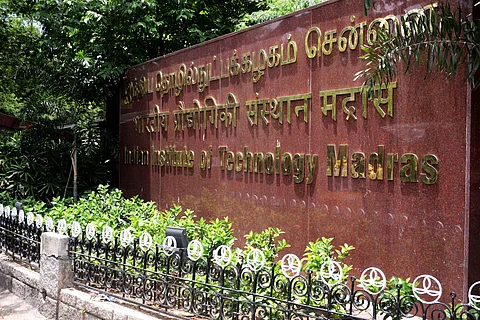

A recent peer-reviewed journal paper published in Nature Scientific Reports has shown the excellent efficacy of Indomethacin, a non-steroidal anti-inflammatory drug, as an antiviral agent in the treatment of mild and moderate COVID-19 patients.
The study conducted at Panimalar Medical College and Research Institute was led by Dr Rajan Ravichandran, an Adjunct Faculty at IIT Madras and Director Nephrology at MIOT Hospital. The study was conceptualised and coordinated by Prof R Krishna Kumar, Professor, IIT Madras. Indomethacin, with more than 20 lakh prescriptions per year in the US alone, is an established drug widely used since the 1960s to treat various types of inflammation-related ailments.
The Indian researchers are the first to show the efficacy of indomethacin through a randomised clinical trial though the scientific basis has been researched by Italian and US scientists. The entire study was funded by Kris Gopalakrishnan, an alumnus of IIT Madras and Chairman Axilor Ventures.
Dr Ravichandran, said, “Knowing that one of the deadly effects of the COVID infection is inflammation and the cytokine storm, we decided to study the non‐steroidal anti‐inflammatory drug, Indomethacin. The scientific evidence strongly shows the anti-viral action against Coronavirus. Indomethacin is a safe and well-understood drug. I have been using it in my profession for the past thirty years.”
Highlighting the research findings, Prof R Krishna Kumar, Professor, IIT Madras, said, “Out of a total of 210 admitted patients, 107 were randomly allocated to a control group, treated with paracetamol and standard care of treatment. 103 patients were administered Indomethacin along with standard care of treatment. The patients were monitored every day for symptoms such as cough, cold, fever and muscle pain, along with oxygen saturation.” None of the 103 patients who received Indomethacin developed oxygen desaturation.
On the other hand, 20 of the 109 patients from the control group were desaturated with oxygen saturation levels below 93%. Indomethacin group patients recovered from all symptoms in three to four days. It took double the time for the control group. Liver and kidney function tests showed no adverse reaction.The fourteenth‐day follow‐up showed that nearly half of the control group patients had several discomforts, while a few Indomethacin patients complained only of tiredness.
The work was chosen for peer review by Rapid Reviews, run by a team from University of California Berkeley and MIT Press. The review stated, “Reviewers deemed the results compelling and reliable.” The two reviewers, Prof Vikas Sukhatme, an internationally-acclaimed expert in immunology from Emory University, and Dr Colin Brown, an infectious disease specialist from the UK, have rated the article a 4 out of 5.
